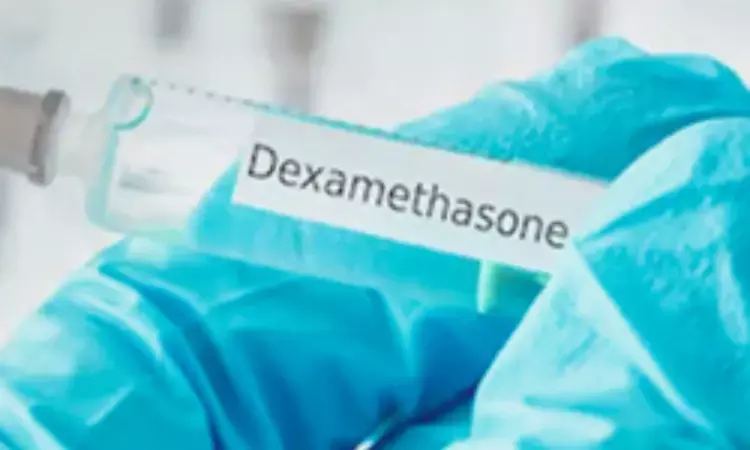- Home
- Medical news & Guidelines
- Anesthesiology
- Cardiology and CTVS
- Critical Care
- Dentistry
- Dermatology
- Diabetes and Endocrinology
- ENT
- Gastroenterology
- Medicine
- Nephrology
- Neurology
- Obstretics-Gynaecology
- Oncology
- Ophthalmology
- Orthopaedics
- Pediatrics-Neonatology
- Psychiatry
- Pulmonology
- Radiology
- Surgery
- Urology
- Laboratory Medicine
- Diet
- Nursing
- Paramedical
- Physiotherapy
- Health news
- Fact Check
- Bone Health Fact Check
- Brain Health Fact Check
- Cancer Related Fact Check
- Child Care Fact Check
- Dental and oral health fact check
- Diabetes and metabolic health fact check
- Diet and Nutrition Fact Check
- Eye and ENT Care Fact Check
- Fitness fact check
- Gut health fact check
- Heart health fact check
- Kidney health fact check
- Medical education fact check
- Men's health fact check
- Respiratory fact check
- Skin and hair care fact check
- Vaccine and Immunization fact check
- Women's health fact check
- AYUSH
- State News
- Andaman and Nicobar Islands
- Andhra Pradesh
- Arunachal Pradesh
- Assam
- Bihar
- Chandigarh
- Chattisgarh
- Dadra and Nagar Haveli
- Daman and Diu
- Delhi
- Goa
- Gujarat
- Haryana
- Himachal Pradesh
- Jammu & Kashmir
- Jharkhand
- Karnataka
- Kerala
- Ladakh
- Lakshadweep
- Madhya Pradesh
- Maharashtra
- Manipur
- Meghalaya
- Mizoram
- Nagaland
- Odisha
- Puducherry
- Punjab
- Rajasthan
- Sikkim
- Tamil Nadu
- Telangana
- Tripura
- Uttar Pradesh
- Uttrakhand
- West Bengal
- Medical Education
- Industry
Study Finds Perineural Dexamethasone May Delay Nerve Recovery After Surgery, Urges Caution for High-Risk Patients

China: A recent randomized controlled trial has brought new insights into the use of perineural dexamethasone for managing nerve injury and recovery following surgery. The study, published in Heliyon, suggests that while dexamethasone is commonly used to reduce inflammation, its impact on nerve function recovery may be more complex than previously thought.
"Perineural dexamethasone could hinder nerve function recovery, indicating the need for caution, especially in patients with pre-existing nerve damage or diabetes," the researchers wrote.
Perineural dexamethasone, a corticosteroid administered near nerves to alleviate inflammation and pain, is often used in surgical settings to enhance recovery and minimize postoperative discomfort. Although many studies have explored how perineural dexamethasone affects nerve block duration, its potential effects on postoperative nerve injury have not been thoroughly investigated. Considering this, Yunke Dai, Department of Anesthesiology, Clinical Medical College and the First Affiliated Hospital of Chengdu Medical College, Chengdu, Sichuan, China, and colleagues aimed to clarify the impact of perineural dexamethasone on nerve injury and the recovery of nerve function following surgery.
The study, a prospective randomized double-blinded trial, was conducted at The First Affiliated Hospital of Chengdu Medical College in Chengdu, China, from June 14 to December 30, 2022. It involved patients aged 18 to 80 years, classified as ASA I or II, who were scheduled for elective orthopedic, burn, or plastic surgery. Participants were randomly assigned to receive either perineural dexamethasone (D group) or no dexamethasone (ND group).
The primary outcomes measured were the incidence and recovery of nerve injury, while secondary outcomes included postoperative pain scores, analgesic consumption, and adverse events.
The researchers reported the following findings:
- Initial postoperative nerve injury rates were similar between groups (D: 30.4 %, ND: 33.3 %).
- At 12 weeks post-discharge, significantly more patients in the ND group recovered from nerve deficits (78.8 % versus 60.3 %; OR = 2.45).
- There were no significant differences in postoperative hyperglycemia or surgical site infection rates.
The study revealed that perineural dexamethasone did not increase the initial risk of postoperative nerve injury but seemed to delay recovery from nerve injury symptoms. The researchers suggest weighing the advantages of prolonged analgesia and reduced postoperative nausea against this potential delay. Diabetes and tourniquet use were identified as significant risk factors, necessitating extra caution in these patients.
"These findings underscore the need for careful use of dexamethasone in high-risk individuals. Future research should focus on optimizing dosing, exploring alternative administration methods, and conducting longer-term studies to better understand the impact of dexamethasone on nerve recovery," the researchers concluded.
Reference:
Zhu, N., Xiang, B., Shi, J., Yang, P., Dai, Y., & Wang, S. (2024). The effect of perineural dexamethasone on nerve injury and recovery of nerve function after surgery: A randomized controlled trial. Heliyon, 10(16), e35612. https://doi.org/10.1016/j.heliyon.2024.e35612
Dr Kamal Kant Kohli-MBBS, DTCD- a chest specialist with more than 30 years of practice and a flair for writing clinical articles, Dr Kamal Kant Kohli joined Medical Dialogues as a Chief Editor of Medical News. Besides writing articles, as an editor, he proofreads and verifies all the medical content published on Medical Dialogues including those coming from journals, studies,medical conferences,guidelines etc. Email: drkohli@medicaldialogues.in. Contact no. 011-43720751


